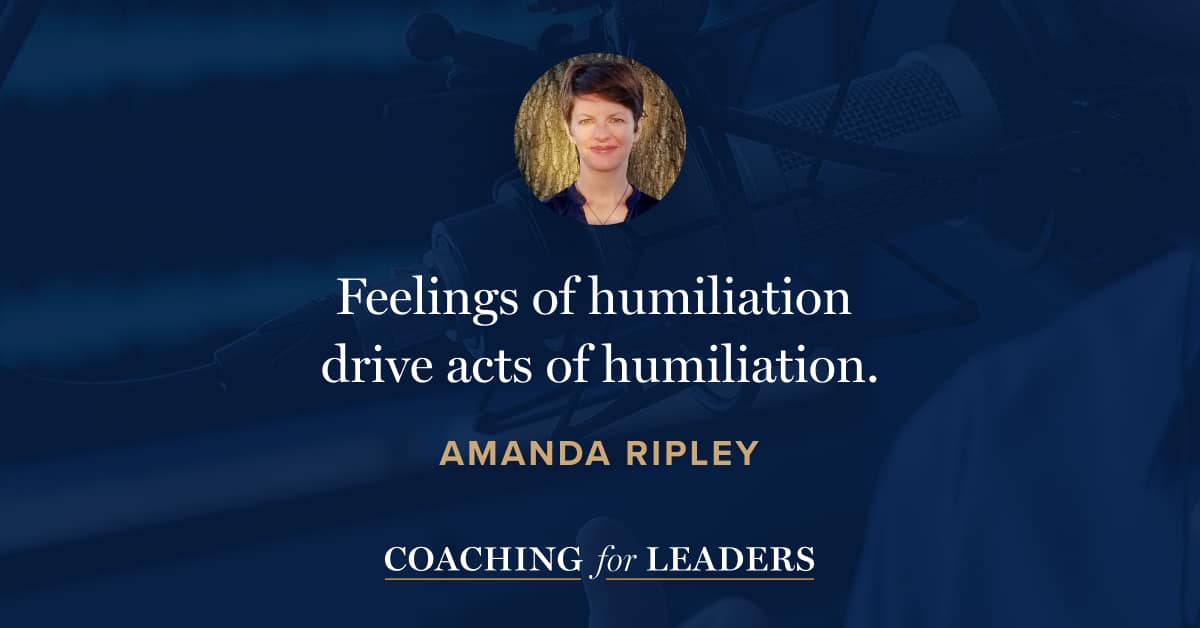Amanda Ripley: High Conflict
Amanda Ripley is an investigative journalist and a New York Times bestselling author. She’s spent her career trying to make sense of complicated human mysteries, from what happens to our brains in a disaster to how some countries manage to educate virtually all their kids to think for themselves.
Her first book, The Unthinkable: Who Survives When Disaster Strikes—and Why*, was published in 15 countries and turned into a PBS documentary. Her next book, The Smartest Kids in the World—and How They Got That Way*, was a New York Times bestseller. Her most recent book is High Conflict: Why We Get Trapped and How We Get Out*.
In this conversation, Amanda and I discuss the distinction between good, healthy conflict — and high conflict that becomes unproductive for almost everybody. We discuss how humiliation is often such a strong catalyst for high conflict. Finally, we explore many of the practical steps to take in order to avoid the worst conflicts and do better for ourselves and our organizations.
Key Points
- Good conflict often brings surprises, but high conflict is surprisingly predictable.
- Humiliation is one of the most powerful fire starters in triggering high conflict.
- Limit humiliation by avoiding attacks on someone’s identity, especially in a public forum.
- Distancing yourself from “conflict entrepreneurs” can help provide the space to emerge from high conflict.
- Resist binaries and us vs. them language. When people get sorted into two groups, that can lay a foundation for high conflict.
- Slowing down conflict can often provide the opportunity to emerge with productive dialogue.
Resources Mentioned
- High Conflict: Why We Get Trapped and How We Get Out* by Amanda Ripley
Related Episodes
- How to Listen When Someone Is Venting, with Mark Goulston (episode 91)
- How to Deal with Opponents and Adversaries, with Peter Block (episode 328)
- How to Find Confidence in Conflict, with Kwame Christian (episode 380)
Discover More
Activate your free membership for full access to the entire library of interviews since 2011, searchable by topic.





